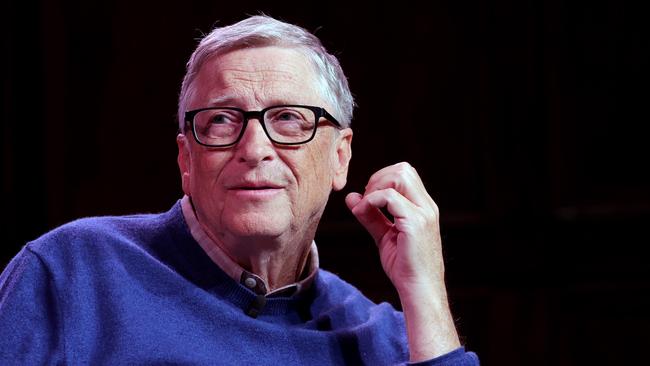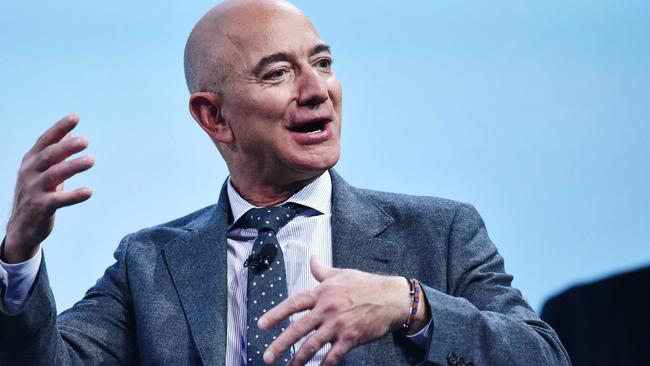Synchron win: Gates, Bezos chip in for smart brains
Funding from the two tech billionaires will help the Aussie biotech accelerate development of its brain computer interface to help patients with paralysis.
Bill Gates has returned to what he knows best, teaming up with Jeff Bezos to invest in developing computer chips for people’s brains.
After making billions of dollars from founding Microsoft in the 1970s, Mr Gates’ investments have been diverse in recent years – ranging from Waste Management and Ecolab to plant-based meat start-up Impossible Foods.
Now he is backing Australian biotech Synchron to accelerate the development of its brain computer interface to treat those with paralysis.
The human brain has become the next frontier for tech billionaires, with Elon Musk announcing earlier this month that his neuroscience start-up Neuralink will test its brain-reading “threads” on humans within six months.

Mr Gates and Mr Bezos’s private investment vehicles, Gates Frontier and Bezos Expeditions, led an $110m Series C financing round for Synchron, which was oversubscribed.
Other investors include ARCH, Reliance Digital Health, Greenoaks, Alumni Ventures, Moore Strategic Ventures, and Project X.
Synchron’s brain computer interface (BCI) is implanted into the blood vessel on the surface of the motor cortex of the brain via the jugular vein via a “minimally invasive” procedure.
Once implanted, it allows patients with paralysis to control mobile devices, such as smart phones, hands-free.
Synchron chief executive and co-founder Tom Oxley said the company has an ongoing US clinical trial that is assessing the impact on daily tasks such as texting, emailing, online shopping, and telehealth services.
“We have an opportunity to deliver a first-in-class commercial BCI,” he said.
“The problem of paralysis is much larger than people realise. 100 million people worldwide have upper limb impairment. We are extremely excited to work with ARCH and this world-class syndicate to bring this technology to the people who need it.”
Dr Oxley said the funding will accelerate development of Synchron’s first platform product, Synchron Switch – which received FDA Breakthrough Device Designation in 2020 – and launch a pivotal clinical trial.

ARCH co-founder and managing director Robert Nelsen said: “Our approach has always been to pair great science and technology with remarkable teams to build disruptive companies”.
“The technology we witnessed at Synchron is . It is an exciting time for neurotechnology.”
Synchron is based in Brooklyn, New York, but has research and development facilities in Melbourne, where one of its co-founders Nicholas Opie is based.
Earlier this month, Mr Musk said Neuralink – the goal of which is to use its platform to treat neurological conditions like movement disorders, spinal-cord injury and blindness – has submitted most of its paperwork to the US Food and Drug Administration.
“We are now confident that the Neuralink device is ready for humans, so timing is a function of working through the FDA approval process,” Mr Musk said.
He also said the implants were small enough now that he would feel comfortable getting one now and hinted at the possibility that he will eventually have an implant for a future demonstration.
“I could have a Neuralink device implanted right now and you wouldn’t even know, hypothetically,” Mr Musk said.
In recent years, neurotechnology development has been spurred by public and private investment, including the US Brain Initiative, which was started by the Obama administration in 2013.
The goal of many of these projects is to access as many neurons as possible because that would give scientists more precise reads on activity that underpins walking, speech and mood, among other brain functions.
They can then turn neural recordings into electrical signals that can be fed into a robotic device or back into the nervous system to produce movement or vision to help patients, according to experts.




To join the conversation, please log in. Don't have an account? Register
Join the conversation, you are commenting as Logout